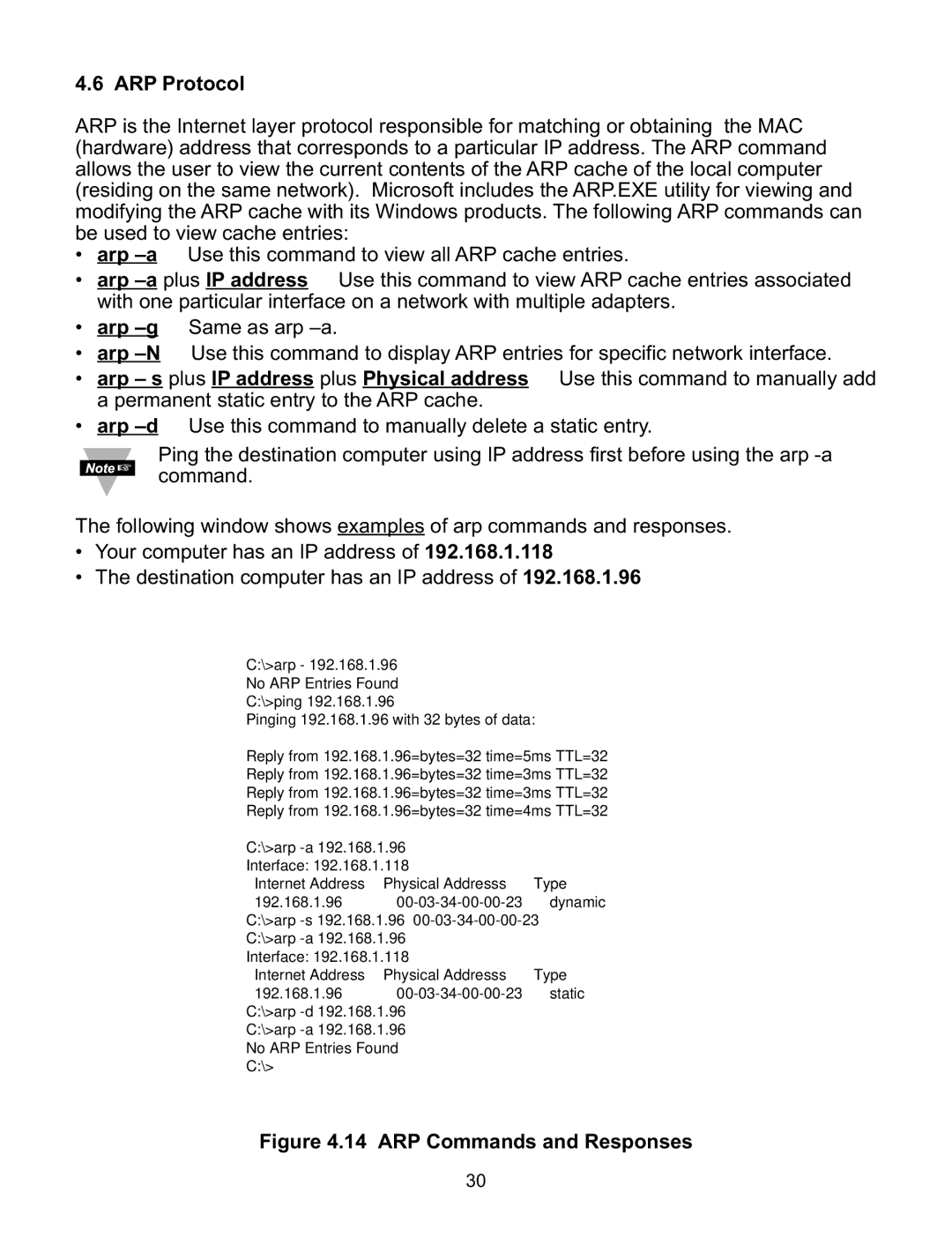
4.6 ARP Protocol
ARP is the Internet layer protocol responsible for matching or obtaining the MAC (hardware) address that corresponds to a particular IP address. The ARP command allows the user to view the current contents of the ARP cache of the local computer (residing on the same network). Microsoft includes the ARP.EXE utility for viewing and modifying the ARP cache with its Windows products. The following ARP commands can be used to view cache entries:
•arp
•arp
•arp
•arp
•arp – s plus IP address plus Physical address ➞ Use this command to manually add a permanent static entry to the ARP cache.
•arp
Ping the destination computer using IP address first before using the arp
The following window shows examples of arp commands and responses.
•Your computer has an IP address of 192.168.1.118
•The destination computer has an IP address of 192.168.1.96
C:\>arp - 192.168.1.96
No ARP Entries Found
C:\>ping 192.168.1.96
Pinging 192.168.1.96 with 32 bytes of data:
Reply from 192.168.1.96=bytes=32 time=5ms TTL=32
Reply from 192.168.1.96=bytes=32 time=3ms TTL=32
Reply from 192.168.1.96=bytes=32 time=3ms TTL=32
Reply from 192.168.1.96=bytes=32 time=4ms TTL=32
C:\>arp | 192.168.1.96 |
| |
Interface: 192.168.1.118 |
| ||
Internet Address | Physical Addresss | Type | |
192.168.1.96 | dynamic | ||
C:\>arp | |||
C:\>arp |
| ||
Interface: 192.168.1.118 |
| ||
Internet Address | Physical Addresss | Type | |
192.168.1.96 | static | ||
C:\>arp
C:\>arp
No ARP Entries Found
C:\>
Figure 4.14 ARP Commands and Responses
30
